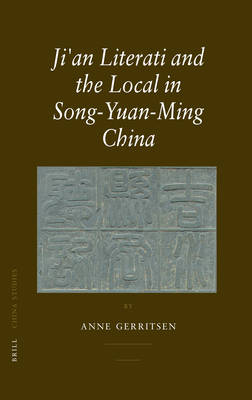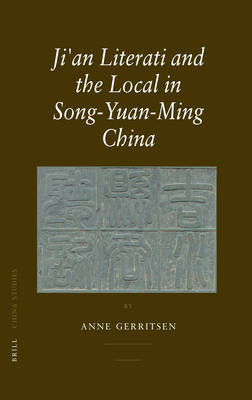
Je cadeautjes zeker op tijd in huis hebben voor de feestdagen? Kom langs in onze winkels en vind het perfecte geschenk!
- Afhalen na 1 uur in een winkel met voorraad
- Gratis thuislevering in België vanaf € 30
- Ruim aanbod met 7 miljoen producten
Je cadeautjes zeker op tijd in huis hebben voor de feestdagen? Kom langs in onze winkels en vind het perfecte geschenk!
- Afhalen na 1 uur in een winkel met voorraad
- Gratis thuislevering in België vanaf € 30
- Ruim aanbod met 7 miljoen producten
Zoeken
Omschrijving
Drawing on largely local sources, including local gazetteers and literati inscriptions for religious sites, this book offers a comprehensive examination of what it means to be 'local' during the Southern Song, Yuan and Ming dynasties in Ji'an prefecture (Jiangxi). It argues that 'belonging locally' was important to Ji'an literati throughout this period. How they achieved that, however, changed significantly. Southern Song and Yuan literati wrote about religious sites from within their local communities, but their early Ming counterparts wrote about local temples from their posts at the capital, seeking to transform local sites from a distance. By the late Ming, temples had been superseded by other sites of local activism, including community compacts, lineage prefaces, and community covenants.
Specificaties
Betrokkenen
- Auteur(s):
- Uitgeverij:
Inhoud
- Aantal bladzijden:
- 276
- Taal:
- Engels
- Reeks:
- Reeksnummer:
- nr. 13
Eigenschappen
- Productcode (EAN):
- 9789004156036
- Verschijningsdatum:
- 26/03/2007
- Uitvoering:
- Hardcover
- Formaat:
- Genaaid
- Afmetingen:
- 171 mm x 245 mm
- Gewicht:
- 657 g

Alleen bij Standaard Boekhandel
+ 512 punten op je klantenkaart van Standaard Boekhandel
Beoordelingen
We publiceren alleen reviews die voldoen aan de voorwaarden voor reviews. Bekijk onze voorwaarden voor reviews.









